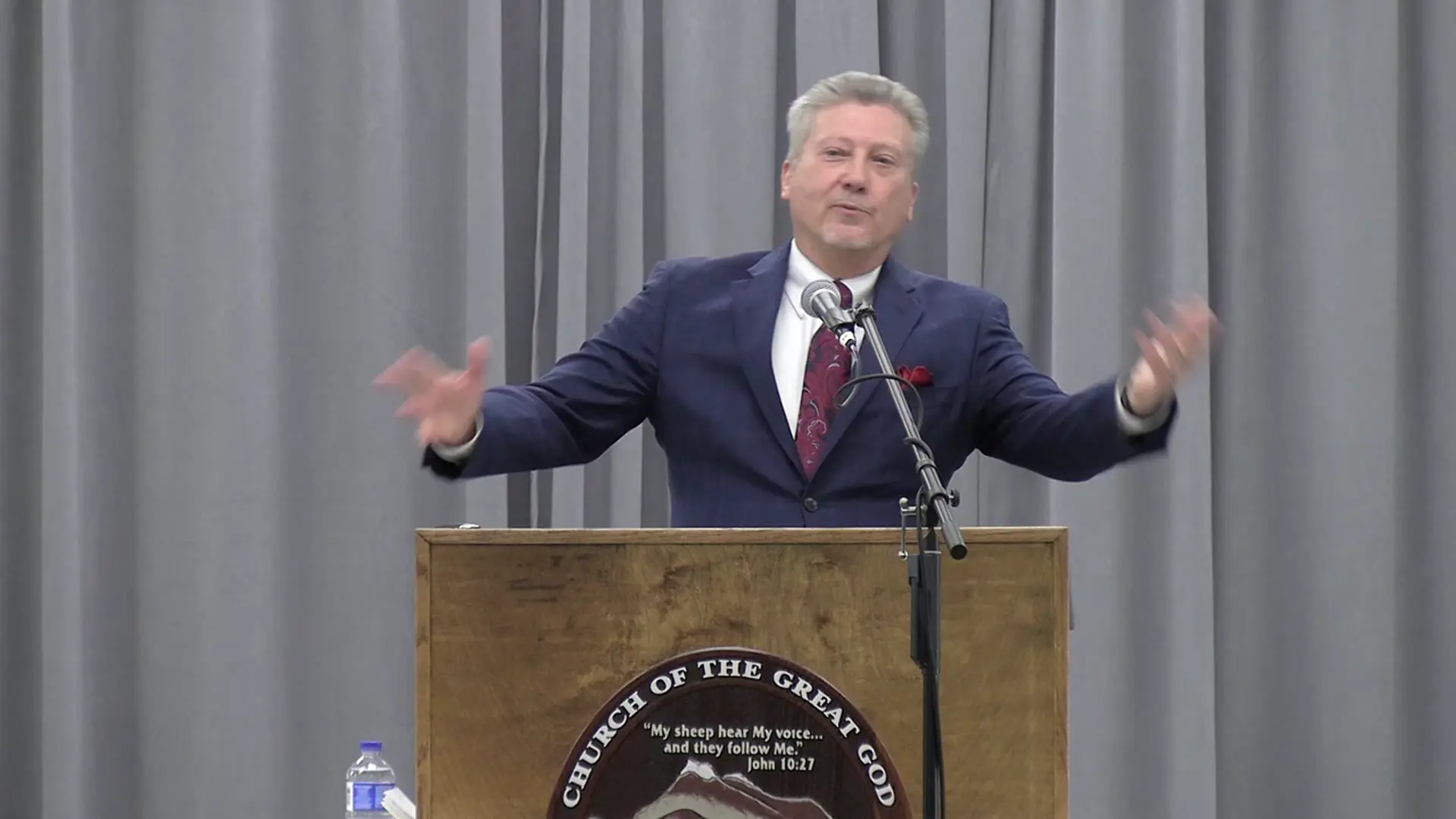Filter by Categories
Holy Days: God's Plan in the Holy Days
Bible Study by StaffGod's Holy Days are a vital part of His plan for humanity, serving as a roadmap to understanding His purpose and the path to salvation. These days, outlined in Leviticus 23, are not merely religious observances but are divine appointments—times set apart by God Himself for His people to meet with Him. They reveal critical aspects of His plan, from the sacrifice of Christ as the Passover Lamb to the ultimate establishment of His Kingdom on earth. Each Holy Day carries profound meaning, acting as a shadow of things to come, pointing to both past events and future fulfillments. Unlike human holidays, which often lack spiritual depth, God's Holy Days are rich with significance, designed to teach His people about their relationship with Him and their ultimate destiny. Observing these days helps believers align with God's will, offering a deeper connection to His eternal purpose. They are a reminder of His covenant and a call to live in harmony with His divine timetable.
Are God's Holy Days To Be Kept Today?
Sermon/Bible Study by Martin G. CollinsThe subject of God's Holy Days is of vital importance, revealing a broad spectrum of understanding of God's truth. Those who do not keep God's holy feasts remain in ignorance and confusion about His plan of salvation for mankind. God's annual holy days and feasts were observed long before the law of Moses was given, as detailed in Exodus 12 with Passover and the Days of Unleavened Bread, and summarized in Leviticus 23, where God outlines the seven annual holy days: Passover, the Days of Unleavened Bread, Pentecost, the Feast of Trumpets, Day of Atonement, Feast of Tabernacles, and the Last Great Day. These holy days are not merely Old Testament observances or Jewish holidays; they are God's Holy Days, rooted firmly in both the Old and New Testaments. Jesus Christ actively observed them in the New Testament church, and true Christians are commanded to observe them today. Despite attacks on these feasts throughout history, including efforts by false teachers to abandon them due to anti-Jewish bias in the Roman Empire, the early church remained faithful in keeping God's annual festivals, as documented in the Gospels, the book of Acts, and the epistles. Jesus Christ, as the Head of the true church, faithfully kept the Passover, the Days of Unleavened Bread, and the Feast of Tabernacles, setting an example for His disciples and the church to follow. He commanded His disciples to observe these days, and they, in turn, taught holy day observance to the church, which continues to exist today. The book of Acts shows the early Christians, including Paul, observing these holy days, using them as reference points in their teachings to Gentile converts, as seen in Acts 20 and I Corinthians 5. Paul, under the authority of Jesus Christ, instructed Gentile converts to keep the feast, emphasizing the spiritual significance of these days, such as purging spiritual leaven during the Days of Unleavened Bread. The early church observed all seven festivals of God, which together lay out the complete plan of salvation. These feasts were given to keep God's children in the true memory and worship of Him, constantly reminding them of His great plan of redemption through their annual observance. God's Holy Days picture different periods in the plan of spiritual creation, mark the stewardship of His truth, and carry vital symbolism and meaning for every member of His church. They were commanded to be kept year after year forever, impressing the truths they represent on the minds of His children through all time, ensuring the church remains in the true understanding of His plan of salvation. When understood in their true significance, these holy days are a source of great joy and hope, to be kept today and forever.

Holy Days: Feast of Tabernacles
Bible Study by Richard T. RitenbaughIn the unfolding of God's plan, His Holy Days reveal the process of salvation and the ultimate triumph of Christ. The spring festivals lead to the Feast of Trumpets, which pictures Christ returning to earth in power to crush satan's final attempt to dominate the world. Saints from all ages will be resurrected or changed to immortality, achieving total unity with their Creator for the first time in history. Satan will be bound for a thousand years, his destructive influence completely severed. The Feast of Tabernacles symbolizes the Millennium, a time when the whole earth will rest under Christ's rule. During this period, the earth will be full of the knowledge of the LORD, bringing peace among nations, neighbors, and families. Diseases such as cancer, diabetes, heart disease, blindness, and deafness will be eradicated, and the deserts will yield abundant harvests. The animal kingdom will live in harmony with humanity, all resulting from an unprecedented explosion of knowledge on how to live rightly. At Christ's return, His faithful followers will be appointed as kings and priests over the earth, possessing abilities akin to God's. They will guide people to choose paths that do not harm themselves or others, ensuring that no one hurts or destroys in all of God's holy mountain. The resurrected saints will rule over the survivors of all nations, and if any initially rebel against Christ's authority, He will withhold rain until they submit and observe the Feast of Tabernacles. During the Millennium, people will be required to go to Jerusalem for the Feast of Tabernacles to worship the King, Jesus Christ. This observance will serve as their primary reminder of their place in God's plan and the time to secure their salvation. Failure to keep the Feast will demonstrate a refusal to accept Christ as sovereign and to cooperate with Him in His purpose. At the end of the Millennium, God will release satan for a short time. Despite a thousand years of peace, happiness, and prosperity under Christ's rule, satan will swiftly raise a vast army from across the earth, persuading them to attempt to destroy Christ and His throne in Jerusalem. God will annihilate them with a blinding flash of fire from heaven and cast the devil into the Lake of Fire, never to be freed again.

Holy Days: Atonement
Bible Study by Richard T. RitenbaughGod's Holy Days reveal the expansive plan of God, beginning with personal redemption through Jesus Christ's sacrifice on Passover, progressing to the removal of corruption during the Days of Unleavened Bread, and culminating in the founding of the church and the giving of the Holy Spirit on Pentecost. The Feast of Trumpets portrays the return of Christ, the transformation of the saints into immortal spirit beings, and God's judgment on all mankind. Before Christ's rule on earth commences, spiritual cleansing and salvation must be extended to those emerging from the Great Tribulation and the Day of the Lord, starting with the remnant of Israel, as depicted by the Day of Atonement. This day, the most solemn of the seven festivals, represents a broader scope than Passover, ultimately encompassing all humanity. On the Day of Atonement, Christians fast to afflict their souls, demonstrating that only by seeing themselves in proper comparison to God can they adopt the right attitude to submit to Him. Fasting fosters a humble spirit, showing dependence on God's providence, and is a tool of godly love to free others from sin, intercede for their healing, provide for their needs, and understand His will. The early church observed this holy day, and its rituals, as described in Leviticus, illustrate the steps necessary for mankind to be truly at one with God, including the mediation of a sinless High Priest, Christ, who by His sacrifice opens the way to God's throne, covers and removes human sin, and bears it away. Immediately after returning from heaven, Christ will call the survivors of Israel and Judah back to their ancestral land, offering them redemption and forgiveness of sins, fulfilling the purpose of the Day of Atonement.
Seeking God's Will (Part One): Holiness
Sermon by Richard T. RitenbaughGod's Holy Days are a vital part of walking as children of light, demonstrating obedience to His commands even when full understanding is not yet present. By faithfully keeping these days as commanded in Leviticus 23, one can prove what is acceptable to the Lord through the act of submission to His will. Over time, as seen in the experience of diligent study and observance, God reveals the deeper meaning and purpose behind these Holy Days, showing His plan through them. This principle of obedience before understanding applies to all of God's commands, where persistent adherence leads to eventual insight into why He requires such actions. Thus, keeping God's Holy Days becomes a practical step in aligning with His light, growing in faith, and gaining a fuller comprehension of His desires for us.
Rehearsing God's Plan
CGG Weekly by Richard T. RitenbaughThis weekend marks the beginning of a new sacred year, with this Sabbath being the first day of the year on the Hebrew calendar. God tells Moses in Exodus 12:2 that this month shall be the beginning of months, the first month of the year. The beginning of another year means that we will observe another round of God's holy days, the seven high days between the first day of the Feast of Unleavened Bread in the early spring and the eighth day of the Feast of Tabernacles in the autumn. These seven appointed times of holy convocation are carefully crafted memorials that tell the story of God's magnificent plan of salvation, rehearsed each year as a reminder of what God is doing among mankind. Certain holy days commemorate major events in the history of Israel, standing as types of spiritual realities brought about by God. Some holy days are memorials of future events, with God revealing enough in His Word for us to feel certain about what they prefigure. Although Passover is not a holy day with a holy convocation like the other festivals, it plays a major role in the story of God's plan, explaining the first, vital step of redemption by the blood of a perfect sacrifice. The day after the Passover begins the Feast of Unleavened Bread, commemorating Israel's flight from Egypt into the wilderness, a time of remembering our spiritual wilderness journey, fleeing from the corruption of sin with God's help. Pentecost, the next holy day, seven weeks after Unleavened Bread, is called the Feast of Harvest, depicting a small, early harvest of God's people. The next four holy days—Trumpets, Atonement, Tabernacles, and the Last Day—are celebrated in the fall. The Feast of Trumpets covers the return of Jesus Christ, His rewarding of the saints, and His defeating of all opposition to His rule. Atonement signifies the binding of satan, removing his evil influence for the majority of the coming Millennium. The Feast of Tabernacles represents Christ reigning with the resurrected saints for a thousand years, while the Last Day offers the great majority of humanity the opportunity to live under God's gracious judgment and accept salvation.
How Do We Keep God's Festivals?
'Ready Answer' by Richard T. RitenbaughAs the first signs of spring emerge, the minds of longtime Christians often turn to the nearness of the Passover and the Feast of Unleavened Bread, prompting self-evaluation and the physical task of removing leaven from homes. God's holy days bring extended fellowship, meaningful messages, and the joy of feasting, yet many observe them routinely without considering the challenges faced by those new to these practices. For Christians, keeping God's holy times involves following biblical instructions and church traditions to honor Him and benefit from the meaning and joy of His feasts. Leviticus 23 provides a concise list of God's appointed times, emphasizing that these festivals are His, not belonging to any group, with Him as their Source and ultimate Object. Our observance must focus on Him and His teachings, bringing spiritual and physical benefits. These days are proclaimed as holy convocations, set apart for gathering God's people together for instruction, worship, and unity in purpose and relationships within the Body of Christ. Additionally, like the weekly Sabbath, the seven annual holy days are Sabbaths, times of solemn rest where no customary work is to be done, allowing focus on worship and fellowship. Specific instructions guide the observance of these days. For the Feast of Unleavened Bread, no work is permitted except for preparing food necessary for eating, as feasting is integral to the holy day experience, reflecting the abundance He has bestowed. The Night to Be Much Observed, marking the start of this feast, involves a grand meal commemorating freedom from bondage. In contrast, the Day of Atonement is a solemn day of fasting, with no eating, drinking, or working, dedicated to worship, prayer, and humbling ourselves before Him for His work in atoning for sin. The Passover, while not a Sabbath, is a significant memorial of key events in God's plan, observed in the evening with a service modeled after the Last Supper, including foot-washing, partaking of unleavened bread and wine by baptized members, and listening to Jesus' discourse, closing with a hymn. The Feasts of Unleavened Bread and Tabernacles stand out with unique commands: removing leaven during Unleavened Bread symbolizes living a life of sincerity and truth, while living in temporary dwellings during Tabernacles teaches that Christians are pilgrims journeying toward the Kingdom of God. A festival tithe is set aside to cover expenses for these observances, ensuring proper celebration. Offerings are also taken during the holy days, given voluntarily according to the blessings received from Him, as a way to appreciate His loving care. Keeping these festivals year after year builds understanding of His plan and the process He guides us through, making them cherished times of worship that reflect His goodness.
Feast: Command of God?
Sermonette by Ronny H. GrahamKeeping God's annual Sabbaths are just as much a mandate on God's people as keeping the Ten Commandments.

Jesus in the Feasts (Part Six): The Eighth Day
Feast of Tabernacles Sermon by Richard T. RitenbaughThe Eighth Day encapsulates the fullness of God's divine plan through Christ, who embodies and fulfills every lesson, hope, and promise depicted in the holy days.

Jesus and the Feast (Part One): Alignment With God
Feast of Tabernacles Sermon by Richard T. RitenbaughOnly in John 7 do we find some evidence of Tabernacles and the Eighth Day, providing a gold mine to discover what was on Jesus's mind during this time.

Sharing Our Lives at the Feast
Article by Mark SchindlerThe Feast of Tabernacles is a wonderful gift God has given us to spend time with each other, really sharing of ourselves. Here is how this can be done.
Appointments
Sermon by Clyde FinkleaGod established the weekly Sabbath on the seventh day of Creation; He established His Holy Days (moedim) on the fourth day. These are His appointments.
The Rea$on for the Season
CGG Weekly by David C. GrabbeIf there is indeed a 'war on Christmas,' then let Rome defend it, for it was pagan Rome that co-opted the winter solstice and inserted the presumed birth of Jesus.

Does Jesus Recognize Today's Christianity?
'Ready Answer' by Craig SablichModern-day Christianity is a patchwork quilt of doctrines and practices. Does Jesus recognize it as the church He founded? Does it follow His teachings?
Why Passover and Not Easter?
CGG Weekly by Richard T. RitenbaughThe Catholic Church did not forbid keeping the Passover until AD 325. The controversy over Passover or Easter boils down to following Scripture or Roman tradition.
Why Are We Here?
Sermon by John W. RitenbaughJesus Christ's and Paul's example in Sabbath observance (including the annual Sabbaths) provide a model as to how we keep the Sabbath and the holy days.
Rejoice at the Feast
Sermonette by Mike FordDeuteronomy 16:13 and other scriptures admonish us to rejoice at the Feast of Tabernacles. How does this apply if things go wrong?
Places of Safety (Part One)
Sermonette by Ryan McClureGod see His Holy Days (include the weekly Sabbath) as typical places of safety. Such occasions foreshadow a time when the wolf and lamb dwell together.